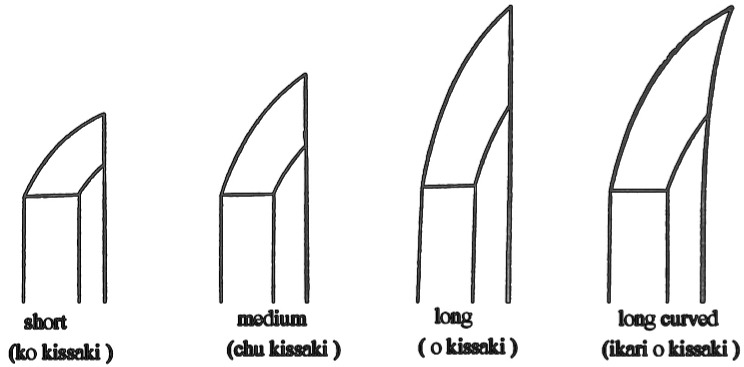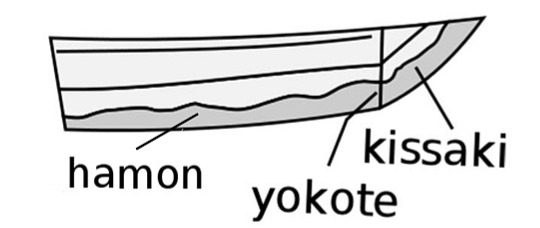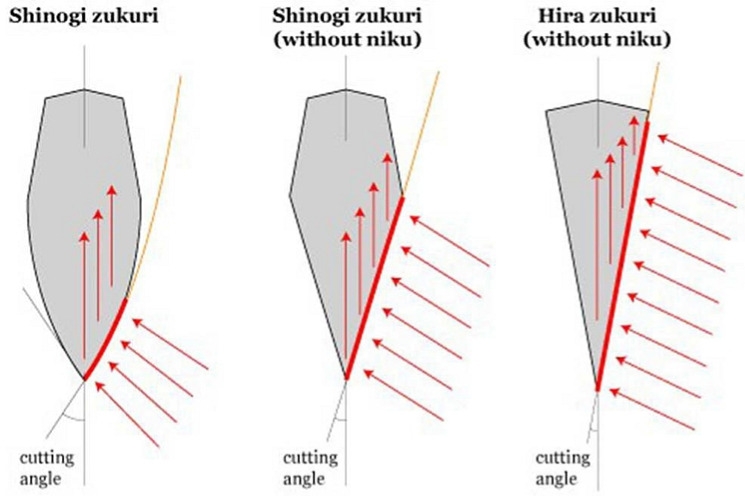katana DOREI - 2.30 Shaku, carbon steel AISI 1045, polished imitation hamon, Yokote
Code: K-657



Related products

tsuba & kashira & fuchi

hanging wooden stand & black, matt & for 8 samurai swords & for katanas & for wakizashi

two-tier wooden stand & matt, black & for katanas & for wakizashi & for tanta

two-tier wooden lacquered stand & for katanas & for wakizashi & for tanta

hanging wooden stand & black, matt & for 4 samurai swords & for katanas & for wakizashi

wooden lacquered stand & dragon motif & for katanas & for wakizashi & for tanta
Product detailed description
Katana Dorei, AISI 1045 Mono-Steel, imitation hamon, Yokote
nagasa 2.30 Shaku, chu kissaki
Forged Japanese sword KATANA with polished imitation of hardening (hamon) and Bo-Hi groove. Sharp (cut) samurai sword KATANA will find its use as a decoration, but also for active martial arts training. The Katana is not entirely suitable for cutting harder materials. The steel is not partially hardened (hamon is only polished) and therefore has a low degree of hardness. Chopping hard materials would leave marks on the blade of the sword. Attractive and sharp blade, black glossy saya with orange trim, plus tsuka (handle) which is covered with genuine stingray skin, all this makes this katana very interesting and desirable. The katana is stored in a canvas bag and a cardboard box. The blade of the katana is decorated with a polished imitation of the hardening line of a hamon. Company Dellinger disclaims all liability for injury and damage resulting from use. Keep the katana out of the reach of children! Any handling of the samurai sword is your own responsibility. Remember, you have a deadly weapon in your hands!
Decorative katana with blade length of 2.30 Shaku (69.5 cm)
The tip of the blade is shaped shinogi-zukuri and chu kissaki with real Diamond-Shaped Yokote.
A blade with a groove is ideal for training the cleanness of the cut, because thanks to the bo-hi groove, the blade "whistles"(tachi kaze - "wind of the sword") during a technically well executed stroke, so that it is possible to verify the correct execution of the technique.
Do you need some advice?
We will be happy to help you with your selection or answer your product questions! Call our customer service line at 702 049 048, which is available for you Mon - Fri, 7:30 am - 4:00 pm!Technical description of components
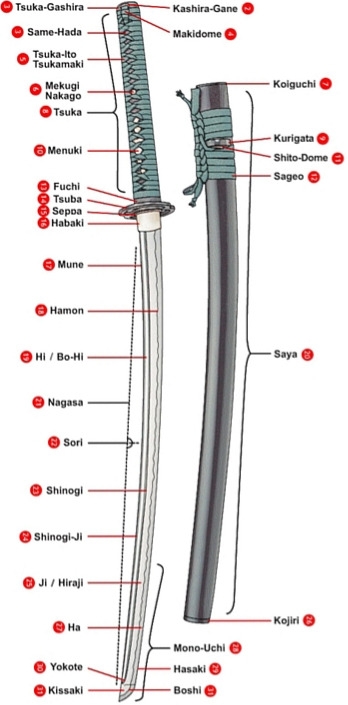
- Blade material - AISI 1045 Hi-carbon steel
- Saya: (shell - cover) made of hardwood in black glossy finish with orage trim. High-quality green silk Sage-O braid is tied around the Kurigata (button) of the Sayi (sheath-cloak).
- Tsuba: (guard) black cast
- Tsuka: (handle) wooden core wrapped with genuine stingray (Samegawa) skin with green braid - Ito. The blade of the katana is secured with two mekugi (bamboo pins). You can remove the blade from the handle by pulling out these pins. On each side of the Tsuka (handle) there is a menuki (ornament under the braid). Black handle ending (Kashira).
- Total length of katana (without saya) - 101 cm
- Blade length (Nagasa) - 69,5 cm (from the end of Habaki)
- Length of the handle - 29 cm
- Tip length (Kissaki) - 4.0cm
- Weight without Saya - 1023 g
- Habaki - brass with grooves (length 2,5 cm)
We will make a katana for you according to your requirements
We make katanas, wakizashi and tanto knives to customer's specifications. The lead time after payment of the 30% deposit ranges from 60-90 calendar days.Grounds for non-recognition of warranty - misuse
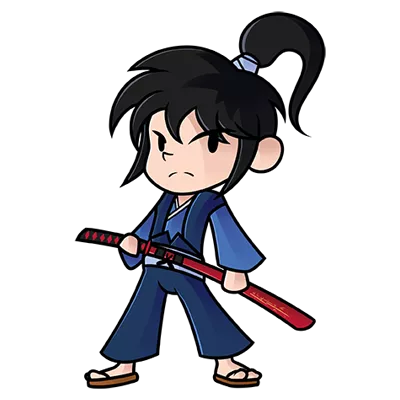
- In general, these are all activities except for traditional chopping test techniques, which involve chopping into special mats.
- Chopping branches, trees and bushes: for this activity, people have developed other tools such as axes or machetes.
- Chopping or swordplay with another sword: destructive damage to the blade of a samurai sword occurs - samurai avoided any direct contact with the enemy to avoid damaging the blade. The repair was long and expensive.
- Never carry a sharp samurai sword with the blade exposed in public: always keep the sword sheathed in the Saya (scabbard). In Germany and other EU countries, this is even an obligation prescribed by gun law.
- Never insert a dirty blade into the Saya: If you are performing chopping tests on fruit, clean and preserve the blade immediately after chopping, otherwise the blade will rust and oxidize.
- Never leave your sword in a damp place such as a porch, shed, cellar or conservatory: This traditional weapon certainly doesn't deserve such treatment. Always clean the blade after use, brush with oil and store the sword in a dry place.
Dellinger guarantee
Products supplied by Dellinger come with a 100% satisfaction guarantee or a risk-free money back guarantee. We guarantee an excellent product that will give you the best service and is proven by many satisfied customers. Each piece can become a wise gift solution for a birthday, wedding or Christmas. Every product that Dellinger offers is carefully inspected. We bring you a lifetime warranty against any hidden defects. If you have any questions - our team is fully at your disposal and will try to help you in any (even unpleasant) situation.Additional parameters
| Category: | katana |
|---|---|
| Warranty: | 2 years |
| Weight: | 1.27 kg |
| steel - blade material: | carbon steel 1045 |
| the length of the blade (nagasa) from the end of the habaki: | 2,30 Shaku - 69,5 cm |
| Hamon: | no |
| Bo-Hi groove: | ano |
| suitable for sectional tests: | No |

Full tang tactical wakizashi - Japanese Sword & Clay Tempered L6 Steel

Wakizashi Akaei & Nagasa 1,66 Shaku & Japanese Sword & AISI 1095 Hi-carbon steel & real hamon Choji & Diamond Shaped Yokote & chu-kissaki tip & Bo-Hi gutter & blade hardness...




